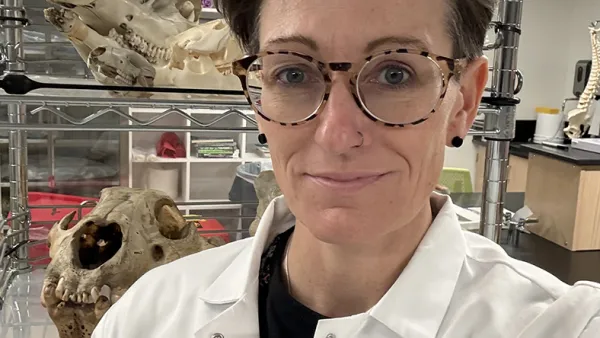Joel Perlmutter’s lab has many different projects, most of which are focused on the development of new PET radiotracers for Parkinson disease. My project in the lab is to study a non-human primate model of Parkinson disease, and the effects of a new drug, Carboxyfullerene (C3), on neurotransmitter levels and dopaminergic cells in different regions of the brain. I do this with the in-vitro measures high performance liquid chromatography (HPLC) and Tyrosine Hydroxylase staining on brain tissue.
Parkinson Disease is a progressive neurological disorder that presents with symptoms such as tremor, rigidity and bradykinesia. The drug Carboxyfullerene is a promising treatment for PD for reasons such as its anti-inflammatory properties. A nonhuman primate model is effective for studying PD and C3 because nonhuman primates present with similar motor manifestations, and there is a high predictive value for symptomatic therapies between nonhuman primates and humans.
The goal of this project is to see the degree to which C3 restores dopaminergic nigrostriatal damage and modifies neuroinflammatory and reactive species responses to a PD model in non-human primates, and is a critical step in the process of finding a treatment for Parkinson Disease in humans.



